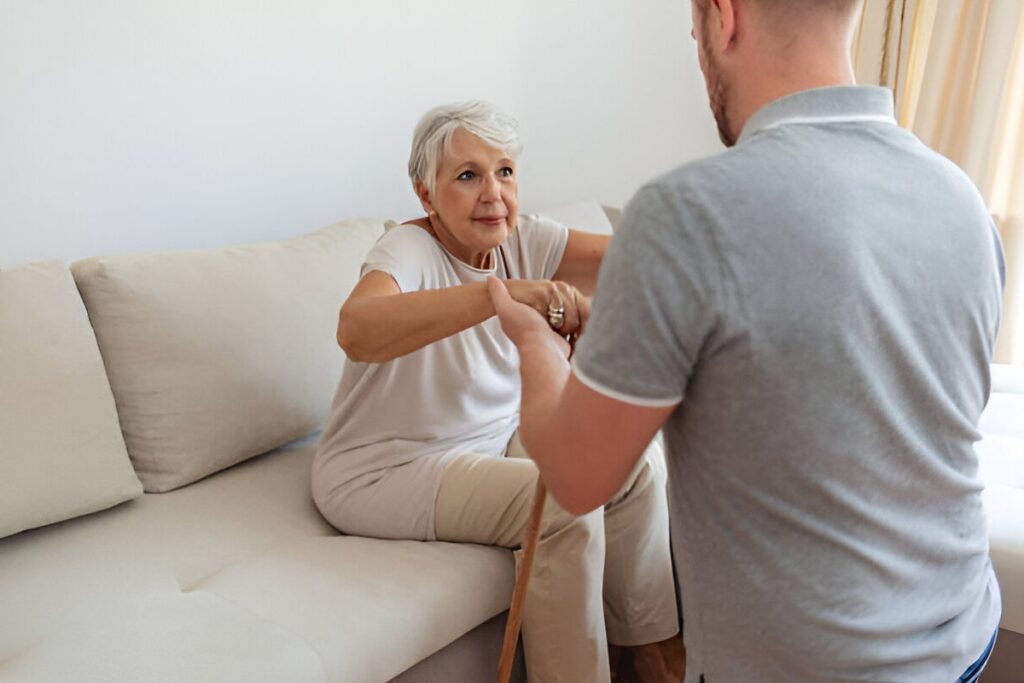The decision to place a loved one in a nursing home is often accompanied by the expectation of quality care and a safe environment. Unfortunately, this is not always the case, as various injuries can occur in these facilities, leaving families to seek justice and accountability.
A thorough understanding of common nursing home injuries and the available legal recourse can empower families to take the necessary steps to protect their loved ones. You can click here to understand common the legal challenges associated with nursing home injuries.
Common Nursing Home Injuries
Falls:
Falls are one of the most prevalent and serious injuries in nursing homes. Elderly residents often have mobility issues, making them more susceptible to trips and falls. These incidents can lead to fractures, head injuries, and a decline in overall health. The most common causes of falls can include inadequate supervision, poor facility maintenance, or a lack of proper assistive devices.
Bedsores (Pressure Ulcers):
Bedsores, or pressure ulcers, occur when residents are left in the same position for extended periods without adequate movement. They are preventable injuries that result from neglect, particularly in bedridden or immobile patients. These sores can lead to severe infections and are a clear indicator of insufficient care.
Medication Errors:
Administering the wrong medication or incorrect dosages can have severe consequences for nursing home residents. Such errors might occur due to understaffing, lack of proper training, or communication breakdowns among staff. Medication errors can also lead to adverse drug reactions, worsening health conditions, or even fatal outcomes.
Potential Causes of Injuries
Injuries in nursing homes can often be traced back to systemic issues within the facility. The common causes include:
- Neglect: Failure to provide basic care, supervision, or necessary medical attention.
- Inadequate Staffing: Insufficient staff numbers can lead to overworked employees, resulting in neglect or mistakes.
- Lack of Training: Staff members who are not properly trained may not know how to prevent or handle emergencies effectively.
- Poor Facility Conditions: Unsafe environments with hazards like wet floors or clutter can increase the risk of falls.
Legal Recourse for Families
Families seeking justice for injuries sustained in nursing homes have several legal options:
Filing a Lawsuit:
When a nursing home fails to meet the standard of care, families can file a lawsuit alleging negligence or abuse. This legal action seeks to hold the facility accountable for the harm caused to the resident. Successful lawsuits can result in compensation for medical expenses, pain and suffering, and punitive damages.
Pursuing a Settlement:
In some cases, nursing homes may opt to settle claims out of court. Settlements can provide quicker resolutions and financial compensation without the lengthy process of a trial. Families should weigh the advantages and disadvantages of settling versus pursuing court action.
Reporting to Regulatory Agencies:
Besides legal action, families can report incidents to state regulatory agencies that oversee nursing homes. These agencies can conduct investigations and impose penalties or corrective actions on the facility.
Importance of Legal Representation
Navigating the complexities of a nursing home injury case requires professional legal guidance. A skilled attorney specializing in elder law can:
- Evaluate the Case: Determine the viability of a claim and gather the necessary evidence.
- Negotiate with Insurance Companies: Advocate for fair compensation through skilled negotiation.
- Represent in Court: Provide expert representation in court, ensuring the case is presented effectively.
Remember, legal representation not only increases the chances of a successful outcome but also alleviates the stress on families by managing the legal process.
Conclusion
Nursing home injuries, whether due to falls, bedsores, or medication errors, highlight significant lapses in care. A general knowledge of the available legal recourse enables families to seek justice and ensure their loved ones receive the care they deserve. Moreover, legal representation is crucial in navigating these cases, offering families the support and expertise needed to secure fair compensation and hold negligent facilities accountable.


